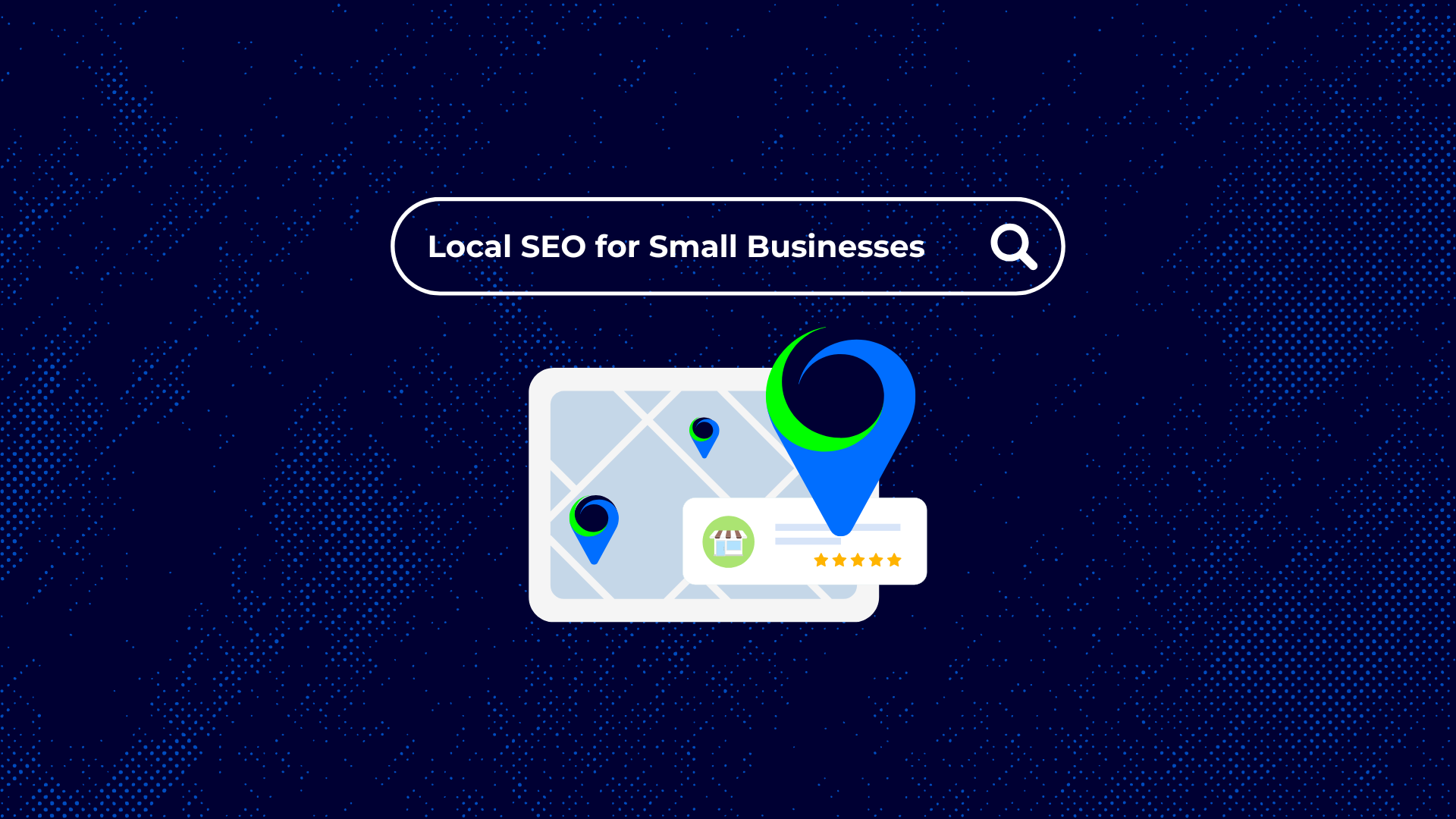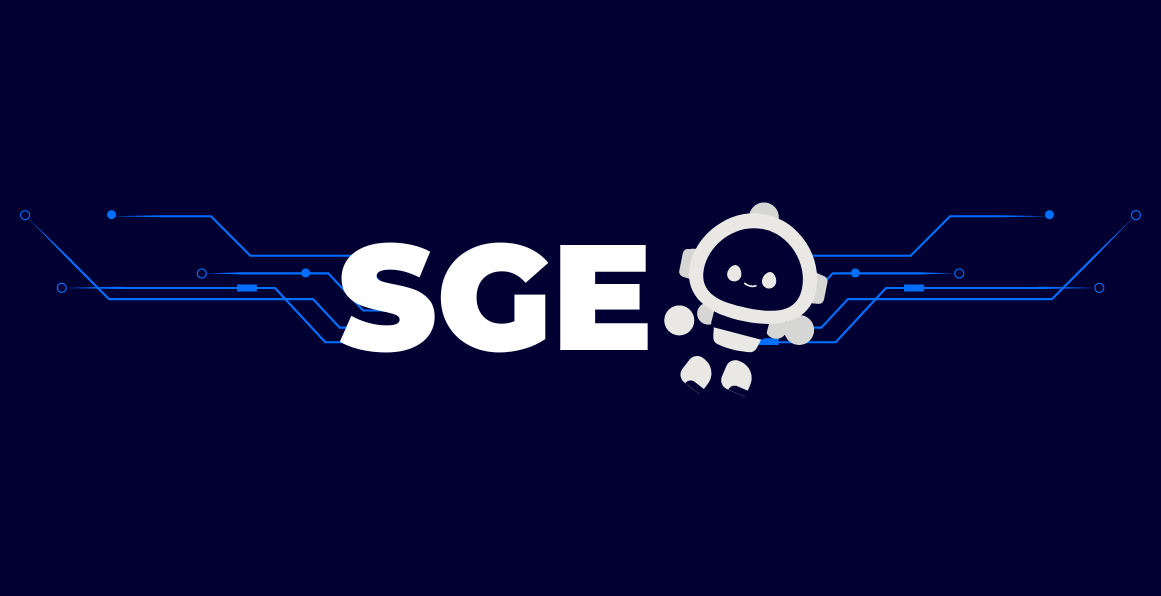How AI Impacts Our Planet & What it Means for Your Small Business
Artificial Intelligence (AI) has rapidly become a part of everyday life, from writing tools and chatbots to customer support and appointment systems....
Got a question, or need help with something?
A member of the LoudLocal team is on hand to help you.
The Brickyard, Unit 2, Queen's Rd, Kenilworth, Warwickshire, CV8 1JQ
5 Merchant Square, Paddington, London, W2 1AY
4 min read
Tanya Hidderley
:
May 1, 2024 1:43:37 PM
In this blog, we will delve into the significant role of E-E-A-T, a crucial concept within Search Engine Optimisation, to keep you informed and aware of its importance. By understanding and applying E-E-A-T, you can empower your website to rank higher and gain credibility in the digital landscape.
Previously in our blog series on SEO, we covered ALT Text and rich results, which both impact SEO in 2024. However, something that crops up regularly is how E-E-A-T impacts SEO.
First of all, what does E-E-A-T stand for?
Experience —This refers to the personal life experience within the industry discussed on a website. It's about the real-world knowledge and insights that the author brings to the table.
Expertise - The knowledge, level, and skills displayed in the topic discussed.
Authoritativeness - The overall reputation of the author/website inside the industry or particular subject.
Trustworthiness - The Author/website must be legitimate. Who is writing the content? Why is the content being written? And is your website's purpose made clear and consistent across the entire site?
E-E-A-T is an acronym created by Google as a component of their Search Quality Elevator Guidelines (SQEG), which you can learn about here.
Imagine you're looking online for information on owning a new animal. You would need the information that you're reading to be written by an author who provides experienced, authoritative, trustworthy, and expert information.
Now, take that and apply it to your business; you'd need to show that you represent these characteristics in your content to help give you credibility, making you rank higher and, in turn, leading to more traffic and new leads. Studies show that the number 1 result in Google gets 27.6% of all clicks. For this reason, applying E-E-A-T in your SEO strategy is one of many essential considerations for Search Engine Optimisation and attaining valuable traffic online.
Now, let's dive deeper into each component of E-E-A-T.
Creating content that demonstrates first-hand experience on a topic shows both the user and Google that the author is more 'qualified' to provide reliable information. That being said, various factors influence how Google perceives experience, such as credibility, readability, and authority.
If you provide a deeper understanding of the subject you discuss in your content, readers will be able to create a more insightful evaluation. This will help Google view you as experienced, Discussing subtopics will also help Google understand that your experience stretches further than the primary topic.
Over time, you may get helpful feedback from customers. What you do with the new information will impact how Google views your website. If you take on the feedback, even if it's negative, and make any necessary adjustments or tailor your content towards the customer's needs, it will prove you have experienced and have made adjustments in response to that experience.
Experienced users can identify issues and solve them efficiently. By picking up on them or preventing them in the first place, you can provide practical solutions or advice to help overcome the obstacles.
Expertise refers to the author's knowledge of a given topic. Do they have the credentials and qualifications to express relevant information? Google looks at factors such as:
Google has a process for assessing your content. It looks to see if your content is well-researched, accurate, relevant, and informative to understand your level of expertise.
If you put out content that in any way contradicts other content, Google will pick up on this. It needs to see high-quality consistent content on a specific topic for an extended amount of time. Just putting out one piece of great content isn't enough; it needs to be consistent. This will help Google see that you're a relevant source within the industry.
Google can consider the author's qualifications and credentials, specifically for topics that require a fair amount of knowledge, such as medical pages or legal advice. Providing Google with this information will help your website qualify for E-E-A-T.
Authoritativeness reflects the influence of your content for your website within your known subject. Google assesses this through;
Google will look at your comments, shares, and likes on all social media platforms. Google reviews this as it gives it more information on how much influence you have within the community.
If you quote another's content, adding credit is crucial. This will show Google that you have understood that you've written your content but used another reliable source to back up your point. If you didn't add credit, it might appear that you are plagiarising, even if it's not your intent. Linking the source to the statement will help prevent this.
Providing more backlinks to trusted and respected websites will increase your authority score. This is something all websites should consider taking on; every link helps with this. Make sure you don't overcrowd your website with them, but adding them where necessary can make a big difference. The #1 result in Google has an average of 3.8x more backlinks than positions #2-#10.
Trustworthiness is considered the most crucial element of E-E-A-T. Being trustworthy not only impacts where you appear on Google, but it also ties in perfectly with how other brands and potential customers perceive you. The majority of people will value trust first, no matter what they are looking for, whether that's information, services, or a product. Trustworthiness covers the reliability, integrity, and safety of the content you are putting out, which Google evaluates by going through these factors;
User experience is crucial when you own a website. By making sure everything is accessible and adding things such as alt text, you can allow people with visual impairments to enjoy and understand your content as much as someone without. Steps such as website design, page layout, and usability contribute heavily towards trustworthiness. Providing a good browsing experience will ensure your users trust you.
Ensure your website has a valid SSL certification and uses HTTPS. Both Google and the average customer will appreciate these efforts when making a financial decision related to your website. Unfortunately, scammers are everywhere and now require a certain level of assurance before taking action.
Honesty is key for both Google and its customers. By having your website clearly disclose its purpose, policies, and ownership, you will be considered trustworthy as you will provide a safe and secure browsing experience.
Google works with search raters, who evaluate people's content on their websites. This is an ongoing task, however, it does not directly interfere with ranking, as Google stated here: ''These guidelines are what is used by our search raters to help the performance of our various search ranking systems, and they don't directly influence ranking. They can also be useful to creators seeking to understand how to self-assess their own content to be successful in Google Search.''
If you enjoyed this blog, check out our latest, Are Zero-Click Searches Beneficial For My Business? We provide monthly blogs based on Search Engine Optimisation to give you a complete understanding of the topics, so why not bookmark it?
If you need any help with SEO, consider booking a call with a member of our team to learn how we can help you achieve your online goals!
Thank you for reading
Best Regards,
The LoudLocal Team 😊

Artificial Intelligence (AI) has rapidly become a part of everyday life, from writing tools and chatbots to customer support and appointment systems....

Getting found by local customers online isn’t some magic trick, it’s about making sure your business shows up when people nearby are searching for...

Running a small business is a full-time job in itself, and finding time for social media can feel like an extra task on the list. But here’s the...

Google's Search Generative Experience (SGE) is one of the latest developments in AI-generated content, helping to provide users with more...

In this blog, we will be taking a deep dive into UX (User Experience) and exploring what it is, why you need to implement it actively, the best...

Throughout 2024, as part of our calendar campaign, we have covered a variety of topics related to search engine optimisation (SEO) and what we felt...